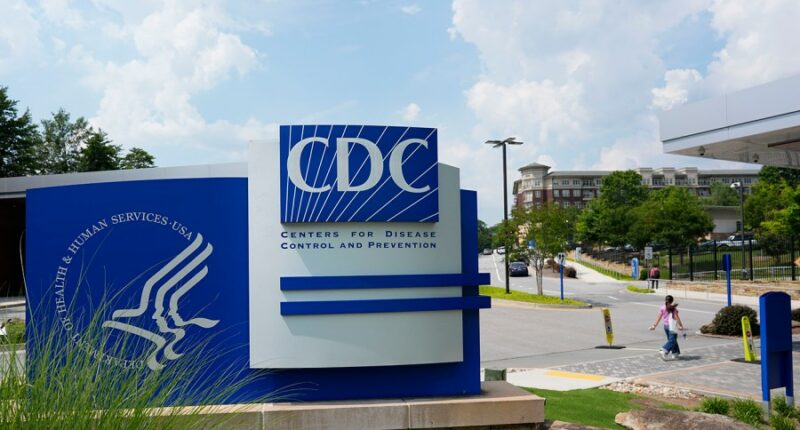Share this @internewscast.com

(The Hill) — On Tuesday, the Centers for Disease Control and Prevention (CDC) issued a report to highlight the dangers of the deadly disease known as “kissing bug” disease, or Chagas.
In its initial stages, Chagas disease can lead to extreme exhaustion, and at its chronic stage, it can result in severe heart and digestive system issues. The disease is spread by blood-feeding insects called triatominae, or “kissing bugs,” which have been observed in 32 states.
States with human cases include California, Arizona, Tennessee, Louisiana, Missouri, Mississippi and Arkansas.
Here’s what you need to know about the infection spread by insects.
Southern states
Historically, this “kissing bug” parasite is more prevalent in the southern areas, regularly surfacing in countries across South, Central America, and Mexico.
“While current data isn’t sufficient to conclusively show that triatomines are expanding their reach or numbers due to a lack of continuous surveillance data, there is a growing recognition of these bugs,” the CDC stated. “This is because of their frequent contact with humans in both domestic and near-domestic settings, as well as increased research focus.”
“Incidents such as home invasions, bites to humans, allergic reactions, exposure to T. cruzi parasites, and more frequent dog diagnoses have heightened public awareness,” the agency noted.
To date, infections among animals such as pet and working dogs and cats have been documented in 23 states, plus Washington, D.C., and the U.S. Virgin Islands. The CDC mentioned that infections in dogs from northern states probably indicate travel from regions where the vectors are more common.
In Texas, the only state where Chagas disease in animals has been a reportable condition, 431 canine cases were reported from 2013–2015 in addition to cases in two cats, one horse, one rat, three chimpanzees and one walrus, per the health agency.
Contracted through bug bites
The Changas disease is often contracted through bug bites on an individual’s face. There have been 280,000 reported human cases of “kissing bug” disease in the U.S., according to the CDC.
“The kissing bug, also known as the triatomine bug, bites and sucks blood from infected animals or people. This is how the bug gets the T. cruzi parasites,” the CDC wrote. “After biting, bugs pass the parasite in their droppings. If these droppings get into someone’s body through a cut in the skin, or near the eyes or mouth, it can lead to infection.”
“People might scratch or rub bug feces into a bite wound, their eyes, or mouth without realizing it, which allows the parasite to enter their body,” officials added.
Many times, people who have moved from rural areas to cities have contracted the disease and live with the illness without knowing it.
Chagas can be spread through blood transfusion, organ transplants, consuming uncooked food contaminated with feces from infected bugs, accidental exposure in a lab and from pregnant women to their babies.
Symptoms include fever, body ache
There are two stages of the disease, which range from acute to chronic symptoms. Weeks or months after getting infected, some may experience fevers, body aches, headache, rashes or loss of appetite.
Diarrhea and vomiting are also early symptoms of infection.
In the chronic stage, most people have no symptoms, according to the CDC.
However, about 20 to 30 percent of those infected develop serious problems that span from issues such as an enlarged heart, heart failure, altered heart rate or rhythm or sudden death.
Digestive problems also plague those with the disease as some suffer from as an enlarged esophagus or colon, leading to trouble eating or going to the bathroom.
Prevention
The CDC advises individuals to protect themselves from the “kissing bug” disease during travel by staying in well-built places, like air-conditioned or screened-in hotel rooms, spraying the places where they stay with long-lasting insecticides and sleeping under bed nets.
Experts also suggest people avoid consuming salads, raw vegetables, unpeeled fruits and unpasteurized fruit juices in areas where the disease may be present.
Long clothing and bug spray are also recommended.










